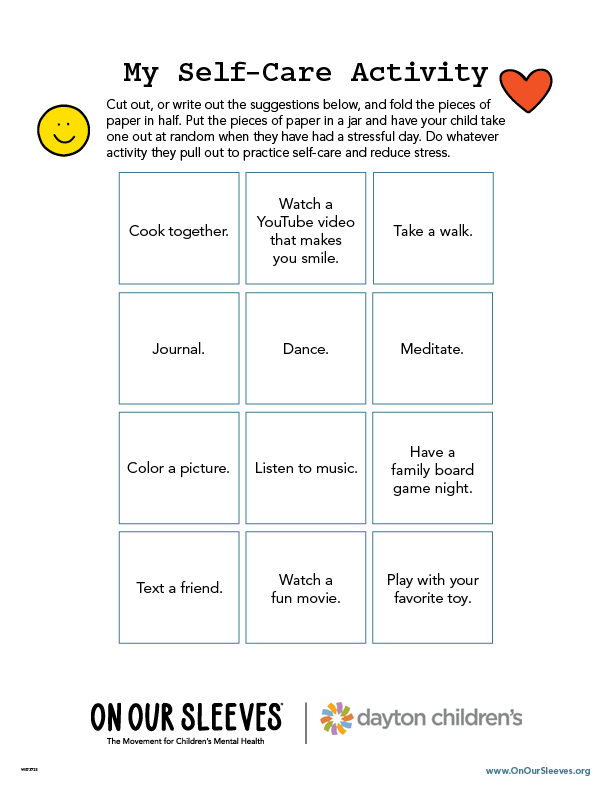3 hidden benefits of stress
how can stress be helpful for our kids?

We’re used to hearing about stress happening from negative situations, such as illness, problems at work or school, deadlines, worry and relationship issues.
Did you know that stress can happen even from positive changes or life experiences? For example, exercising, socializing, riding a roller coaster or moving to a new place!
But how can stress be helpful for our kids? What are some ways it can be bad? How can we cope with it?
Stress can help with:
1. Motivation. Stress can be the fuel that drives us to stick with a project or finish tasks. Without stress, children would be more likely to quit or not care about engaging in activities such as school projects or after-school activities.
2. Resilience. Learning to cope with positive stressors can teach children to deal with bad stressors when they happen. Getting to know how our mind and body react to stress under good circumstances can help us create strategies for when we need strength.
3. Relationships. Going through stressful situations, whether good or bad, with others can strengthen bonds and allow people to feel closer to each other.
What about too much stress?
Stress can become harmful when it affects our physical and mental health with symptoms such as irritability, headaches or stomachaches, appetite and sleep changes, fatigue, feelings of overwhelm and a lack of focus. In the long term, too much stress can cause our children to experience anxiety and depression. This kind of stress can come from things like illness, problems at work or school, deadlines, worry and relationship issues.
How can kids cope with stress?
- Let your child know that some stress is normal and that learning to cope with it is a skill they will use throughout their life. You can even share times you were stressed, in an age-appropriate way, to normalize the feeling.
- Schedule quality time together and make sure you listen to their fears and concerns. If needed, offer help problem solving or coming up with ways to cope.
- Whenever possible, help your child prepare for stressful situations (like a visit to the doctor or a test at school). This will increase feelings of control and can help decrease the feelings of stress.
- Encourage taking care of their physical health, such as making sure they eat healthy foods, get proper rest, and do physical activity.
Stress is a part of life, no matter who we are. Instead of fighting it, it’s time to reframe it and learn—and teach our children—how to cope with it…and make it work for us!
free stress-reducing activities for families

If you’re looking for more ways to support others and discuss mental health, join the movement of On Our Sleeves. We believe that no family should struggle alone in their journey with mental health. Check out more resources and guides, here.
Ways to get involved:
- Become an advocate
- Join our e-community
- Partner with us
- Donate to the cause
- Share your story
join the movement
Kids don’t wear their thoughts on their sleeves. Help us break the stigma and gives kids a voice. Join the movement for children’s mental health.
partner with us
Are you interested in partnering with Dayton Children’s On Our Sleeves to help spread the movement for children’s mental health? Send us a message and we will be in touch!
care that goes above and beyond
Because every child deserves care that goes above and beyond, Dayton Children’s provides compassionate, expert care for kids of all ages. Find a provider, schedule an appointment, or learn more about conditions we treat today.




